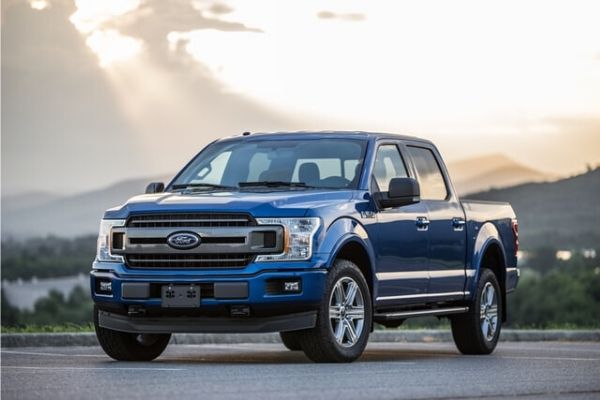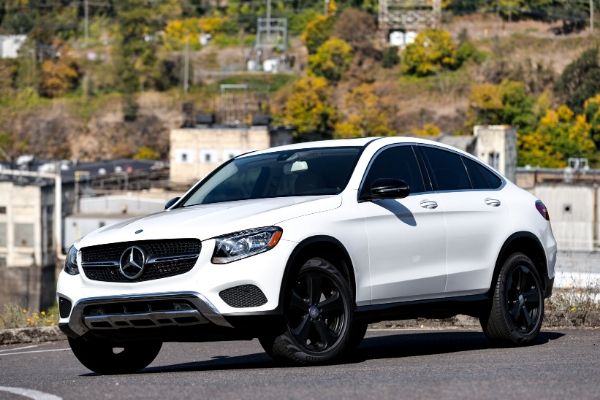How to Get a Financing Deal
 Just like with car price, it pays to get competitive financing offers before heading to the dealership. I'll share where to get the best loan offers below.
Just like with car price, it pays to get competitive financing offers before heading to the dealership. I'll share where to get the best loan offers below.
For the average buyer, once they've agreed on a price, the dealer knows they're on the hook and can slide almost any financing deal through without much scrutiny. But as a smart buyer, you know that the financing you choose can add or save hundreds (sometimes thousands) of dollars onto the life of a loan or lease.
Table of Contents
- Direct Access to Auto Experts
(phone, chat, or email) - Unlimited Access to Car Buying & Negotiation Tools
(market price reports, trade in valuation) - Get 20% Off
Enter SAVE20 at checkout
How to Negotiate Auto Financing
Step 1 - Get Your Credit Score
 Your credit rating, also known as a credit score, will have the biggest impact on what interest rate you can get on a car loan (or whether you can get a loan at all). A score between 720 and 850 typically guarantees the best rate while dropping below that could affect your rate significantly.
Your credit rating, also known as a credit score, will have the biggest impact on what interest rate you can get on a car loan (or whether you can get a loan at all). A score between 720 and 850 typically guarantees the best rate while dropping below that could affect your rate significantly.
For example, on a $15,000 loan, a 750 score may get you a rate of 7.5% on a 5 year loan resulting in a monthly payment of $300. The same loan with a 700 score and rate of 9.5% would have monthly payments of $315 - a cost of $900 over the life of the loan.
A low credit score can affect your car insurance premiums as well. Insurers use this as an indicator of whether you will pay your premiums on time.
You are entitled to a free credit report once a year from each of the three credit bureaus. So be sure to order a copy from one or all of them (they each receive information directly from lenders and can differ from each other). While the reports are free, your scores are not and are important to know because they affect your bottom line. Check the reports for errors or signs of identity theft and correct them as soon as possible. The credit bureaus' websites can also provide you with tips to improve your credit and raise your scores.
Each bureau offers different packages and they are purposely confusing...sound familiar? Read the fine print closely before purchasing anything. Credit monitoring services can be valuable, but you can do this for free yourself by getting a free copy of your credit report from a different bureau every four months (each is required to give you a free copy once a year). Again, be aware that lenders can and do report different information to each of the bureaus.
Order your credit reports for free through AnnualCreditReport.com.
Checking credit yourself will not affect your credit score, however, when lenders check, it has the potential to bring your score down. The credit bureaus will treat multiple inquiries within a 30 day period as a single inquiry, so make sure you are close to purchasing and then get all your rate quotes and fill out credit applications within a short time period.
If you have less than perfect credit, learn how to buy car with bad credit.
Step 2 - Get Financing Offers from Online Lenders
 Sometimes dealerships offer zero percent APR deals. But those often come with caveats like a preset car price or being considered a well qualified buyer. Whether or not dealerships offer any financing specials, I suggest getting pre-approved for two or three auto loans online (like the ones shown below) so that you can bring the best offer with you to the dealership. You will often find better rates than what the dealership can offer.
Sometimes dealerships offer zero percent APR deals. But those often come with caveats like a preset car price or being considered a well qualified buyer. Whether or not dealerships offer any financing specials, I suggest getting pre-approved for two or three auto loans online (like the ones shown below) so that you can bring the best offer with you to the dealership. You will often find better rates than what the dealership can offer.
When you get pre-approved from an online lender, they'll typically mail you a blank check that is pre-approved (up to a pre-determined amount) that you can use to pay for the vehicle. Take this check or documentation of a rate quote with you to the dealership.
When you talk to the Finance Manager, give them a chance to beat the best interest rate you received. The Finance Manager works on commission and will usually try to beat or match your best rate if you give him a chance. Ask him what kind of rate he can give you and do not be embarrassed to show him your outside lending quote. If he cannot match it, then feel free to use your outside financing.
You can get loan offers from any of the online lenders below and compare rates.
Step 3 - Prepare for the Financing Office
 Leasing
Leasing
As with purchasing a car, if you decide to get a lease deal, keep the negotiation on the terms of the lease separate until after you've settled on a car price. Keep in mind the interest rate (or money factor) you get on a lease is also very dependent on your credit score.- Insurance You can change insurance providers anytime so it's not critical to worry about while you are closing the deal. However, the type of car you buy can greatly affect your premium, so be sure to consider that while budgeting. It's always a good idea to make sure you have a competitive policy and a change in vehicle can serve as a reminder to see what's out there.
- Tip:
Get competitive quotes from Esurance. And if you find a better rate, call your current provider and see if they can match it. If not, switch! - Extras
Don't be pressured to pay for anything you're not certain you will need. Dealer add-ons and extras are a very big profit center for car dealerships. The Financing Manager will offer many add-on items such as gap insurance, fabric protection, paint sealant, and VIN etching (an anti-theft deterrent). All of these items you can handle yourself with kits from an auto-parts shop for a fraction of the cost.
Extended Warranty
Most new cars come with a manufacturer's warranty that will cover you for the first few years of ownership, typically 3 years/36,000 miles. As you finalize the paperwork for your new car, the Financing Manager will probably try to sell you an extended warranty that picks up where the manufacturer's warranty ends.
The extended warranty is a service contract for your car that covers the cost of repairs and maintenance as well as roadside assistance. When considering whether to buy an extended warranty, think about how long you plan to keep the car and how expensive servicing is for that model. Whether you buy an extended warranty is a matter of personal preference, but it can offer peace of mind against expensive car repairs.
It is important to note that extended warranties are a major profit center for car dealerships and the price is usually marked up significantly.
There is no requirement to buy an extended warranty from the dealership so if you want the peace of mind, then you should save money and cut out the middle-man by shopping around online.
Keep in mind there are hundreds of types of extended warranties from many different providers and some are better than others while some are downright scams. The only way to know what you're getting for your money is to review the actual warranty contract and buy it from a reputable source with a long track record. Price is certainly a factor, but there are many other factors you must consider in order to get a good contract.
Extended Warranty Considerations
- Is the provider financially stable and do they have a long operating history?
- Do they offer nationwide coverage and the ability to select the repair facility of your choice?
- Do they offer comprehensive coverage including wear and tear?
- Do they make direct payment to repair facilities or do you have to pay out of pocket first?
- Do they offer emergency road-side assistance?
- Is the warranty transferable?




